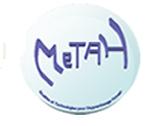MeTAH main concern is to develop models and technologies for the design, development and evaluation of Technology Enhanced-Learning (TEL) systems in the field of education. The team’s research form part of a continuum between fundamental research, with the development of conceptual models, and applied research, with the development of software tools, the two interacting.
MeTAH is interested in how to take educational (didactic or pedagogical) dimensions into account when designing TEL systems. This may involve environments as a whole (e.g. intelligent tutors or collaborative environments) or only specific features of these TEL systems (e.g. diagnosis or feedback). The questions are addressed by developing or adapting methods and techniques from the disciplines of computer science and education. The development of models and technologies involves a strong grounding in the field, thanks to the use of design-based research methods. Users (students, teachers) are involved from the design stage of teaching systems and during experiments leading to re-engineering.
The results are conceptual, with the establishment of concepts and models, and reified in software tools, with the design of TEL systems for education (primary, secondary and university levels), in which the models developed can be tested and then possibly revised.
The main scientific themes addressed by MeTAH are:
- Didactic analyses and modelling of domain knowledge, i.e., understanding the TEL characteristics of the knowledge to teach/learn by taking into account other important factors (e.g., institutional aspects).
- Development of innovative learning situations involving computer systems (examples: inquiry-based learning situations, modelling activity, experimental design activity, self-regulated learning in formative assessment) taking into account issues of transfer from the TEL to the paper-and-pencil environment.
- Development of services based on activity traces and observables: dynamic tutor assistance and reflective synthesis for learners. This involves developing didactic decision models to provide feedback to the learner, based on knowledge modelling.
- Modelling human activity at the behavioural level: user behaviour in interaction with software.
